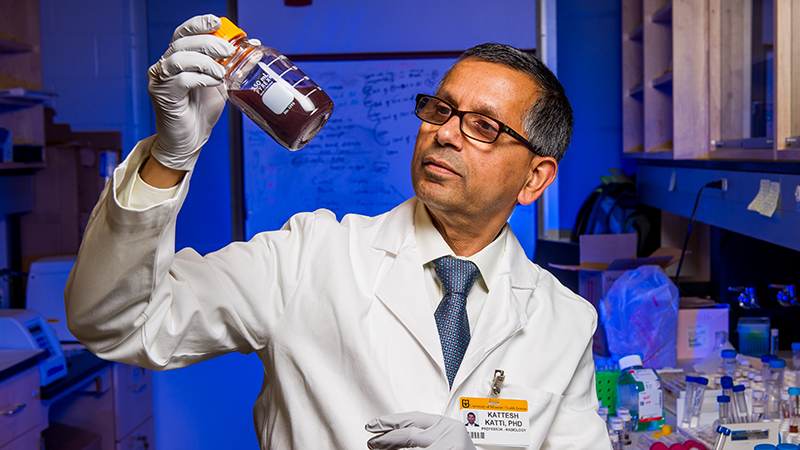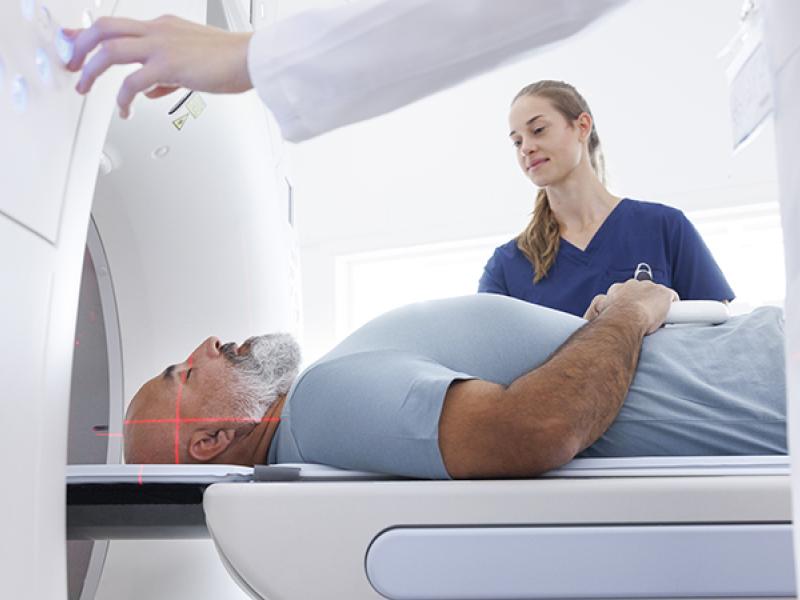
Ayurvedic medicine (also called Ayurveda) is one of the world’s oldest medical systems. Originating in India more than 5,000 years ago, this holistic medicine system uses herbal compounds, special diets and other health care practices to augment conventional preventative and disease treatments. Now, Kattesh Katti, PhD, a University of Missouri researcher, has developed a non-toxic delivery method using gold nanoparticles that may revolutionize Ayurveda. His technique for producing the nanoparticles recently was licensed by Dhanvantari Nano Ayushadi (DNA), a company base in Tamil Nadu, India.
Ayurveda uses combinations of chemicals derived from natural herbs, spices, fruits and vegetables in combination with various metals including gold, silver and copper. Together, the chemicals and metals are aimed at treating various disorders. Traditional medicine, such as Ayurveda is used by 65–80 percent of the world’s population as their primary form of health care, the World Health Organization estimates.
“In the past, metals predominantly used in holistic medicine have been crushed and burned; caregivers grind the ash with herbs to produce an ingestible treatment,” said Katti, Curators Distinguished Professor of Radiology and Physics in the MU School of Medicine and the MU College of Arts and Science and senior research scientist at the University of Missouri Research Reactor (MURR). “However, the ways in which those metals are procured often involve mercury; other toxic means to extract the gold or other alloys can be deadly if ingested in the wrong amounts. The gold nanoparticle production methods use a green technology that effectively eliminates the toxicity associated with these treatments.”
Katti and his team helped develop green nanotechnologies to produce phytonano medicines, which are compounds that form the basis for India’s Ayurvedic medicine. These green therapies are less toxic to the body and could provide alternatives to current treatments for diseases including cancer, arthritis and diabetes among others.
The technology is patent pending and Kavita Katti, a senior research scientist at MU Radiology, recently demonstrated the production methods in the DNA labs in India, which has licensed the technology from Katti and the University of Missouri.
“These successful production runs within the DNA premises and the efficient training of our personnel fully fulfill the requirements signed in our contract,” said Abhaya Kumar Jain, CEO and president of DNA. “We look forward to a long-term working and collaborative relationship with Dr. Katti and his team as we collectively advance the field of nano-Ayurvedic medicine to develop the next generation of health care products for the care and treatment of patients across the world.”
“We are therefore, excited to be the first company in the world to apply principles of green nanotechnology to validate Ayurvedic principles and bring nano-Ayurvedic products to market for the care and savings of human lives suffering from cancer and various diseases/disorders in the world,” Jain said.
Research and product development using the green nanotechnology techniques developed in Katti’s lab will continue at the facility in India. Using Indian Ministry of Ayurveda, Yoga and Naturopathy, Unani, Siddha and Homeopathy (AYUSH) guidelines, DNA will continue to test formulations that could provide complementary therapies to chemotherapy, radiation and other traditional treatments, Katti said.
“We are excited that two great minds, Mr. Abhaya Kumar Jain, a pioneer in the Indian pharmaceutical industry, and Professor Kattesh V. Katti, globally recognized as the ‘Father of green nanotechnology,’ have come together to bring nano-Ayurvedic Medicine technology to India,” said Anantkumar Hegde, who is an elected member of the Indian Parliament. “This is a marriage made in heaven because India and the world needed the intervention of green nanotechnology for the development of Ayurvedic products through scientifically rigorous methodologies.”
“The nano-Ayurvedic medicine approaches are built on rigorous scientifically validated methods,” Katti said. “I am excited to be a part of this important journey using nano-Ayurvedic medicine approaches for treating, healing and curing various diseases. I have always dreamed of helping humanity through my science, I can now see that I am able to use my interdisciplinary green nanotechnology approaches for the development of Ayurvedic products.”
During the past five years, companies commercializing MU technologies have secured hundreds of millions of dollars in investments and grants to advance their commercialization efforts. In 2016, the Office of Technology Management and Industry Relations reported that Mizzou received $14.9 million in revenue from more than 40 technology licenses.
This story originally appeared in University of Missouri News Bureau on July 13th, 2017.





